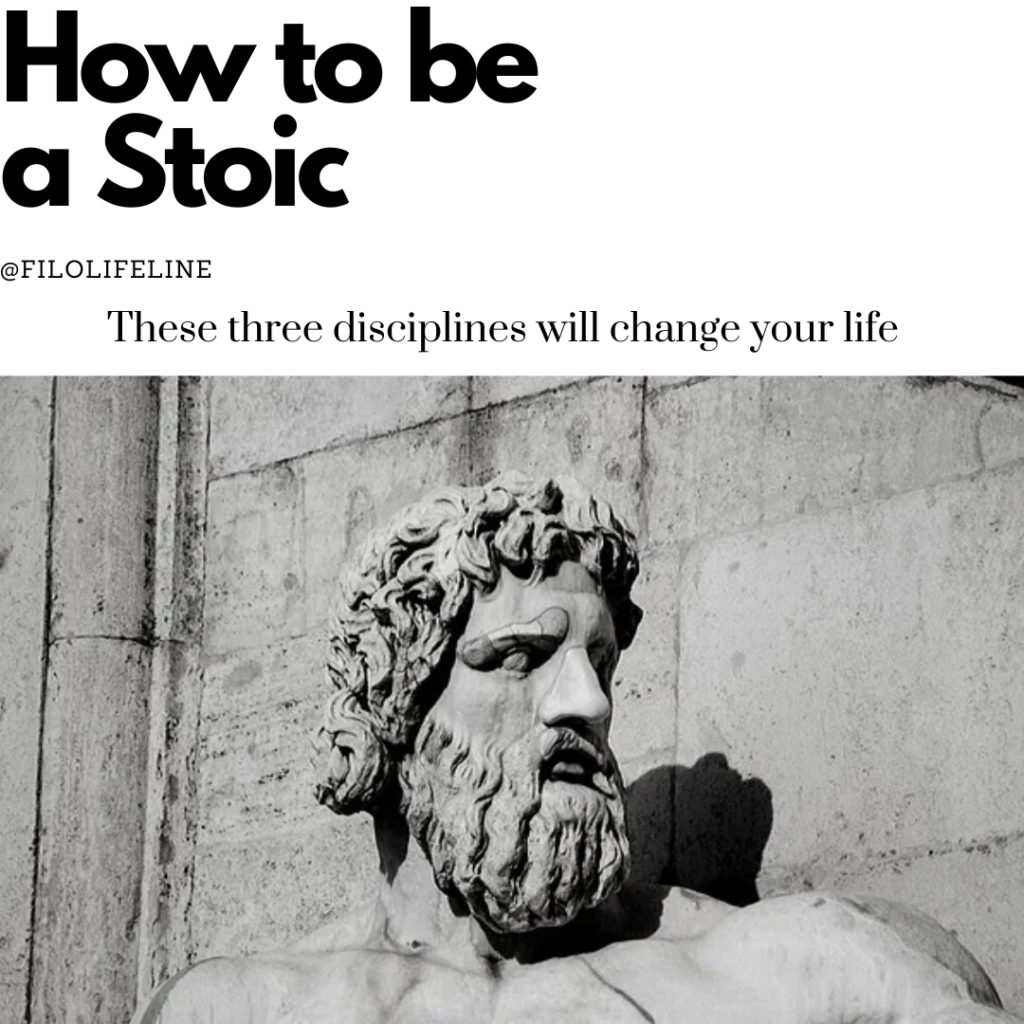
While studying philosophy, stoicism has always appealed to me and even helped me process events in my life. In this blog post, I will share how it helped me and how it could possibly help you too.
Stoicism was a philosophical movement in the time of the ancient Greeks and was concerned with the question of the “good” life. The funny thing is that people thousands of years ago were already thinking about questions we still have today. Back then, for instance, they were already writing about love, friendship and life in general. What makes stoicism so special to me is that we can still learn from this philosophy today even though we are so many years on. I will therefore explain 3 disciplines and how they are still relevant and instructive.
These disciplines are:
Control
Certain things are under our control, but there are other things beyond our control. Knowing the distinction between the two is the path to true wisdom. Even if you have no power over the past, you can still benefit from it. You have power over your work, but not over your boss. Stated differently, we possess the authority to determine what is under our control. An example from my professor that has stuck out a lot is that when you drop a vase you can sometimes be irritated for the next hour and be annoyed by your action. But why get irritated about something that has already happened and you cannot reverse, you simply have no control over it anymore.
Wisdom
Wisdom is the foundational virtue of stoicism. It is the one human ability that is good in all circumstances, according to Socrates. Being well-educated, in good physical health, and possessing a sizable bank account are all desirable qualities, yet they are insufficient. To maneuver through challenging situations and make the most of every opportunity, you need wisdom. Because of this, wisdom is the “chief good,” and you should conduct in accordance with this fundamental principle.
Assent
You are living in ignorance if you fear death. That was the Stoic perspective on human nature. Their methodical approach to life assisted them in overcoming anxiety and rage. Furthermore, it made them accept that dying — our greatest fear — was a common occurrence. Therefore, when faced with a challenging, potentially fatal circumstance, take a step back and assess the situation rather than acting hastily and drawing incorrect assumptions. Behaving casually will help you organize your ideas and solve issues much more effectively. It all boils down to your capacity to ignore everything else and concentrate on the things that are within our power. How could he feel nervous if he did not want something over which he had no control? — Epictetus
Leave a Reply